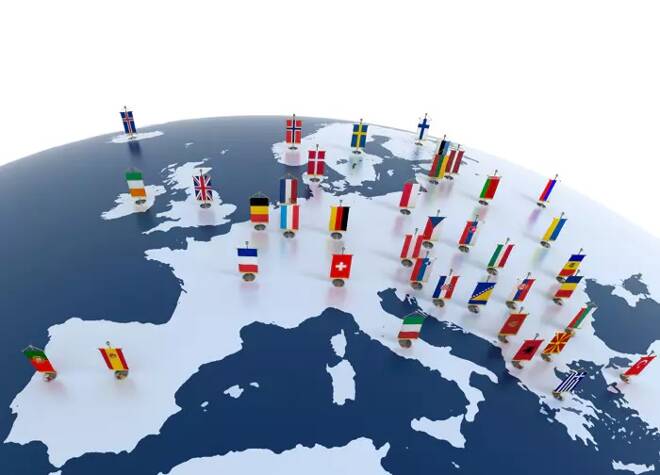Advertisement
Advertisement
Finland, Sweden: Covid-19 Resilience Creates Buffers Against War Costs and Geopolitical Risks
By:
Covid-19 left a relatively short-lived mark on economic and fiscal outlooks of Finland and Sweden, which are, furthermore, well positioned to face the economic impacts of war in Ukraine. Exposure to geopolitical risks is now at the centre of government agendas.
The economies of Finland and Sweden proved resilient during the Covid-19 pandemic crisis. Economic contraction in 2020 of 2.3% and 2.8% of GDP respectively was approximately half the average for EU countries. This was followed by rapid recoveries, with real GDP already reaching pre-pandemic levels in both countries during the first half of 2021 (see Figure 1).
Figure 1: Economic recovery from Covid-19
Real GDP level, 2019=100
The strong economic rebound also allowed for quick recovery in the countries’ government budgets last year, with a rapid reduction of headline fiscal deficits to levels well below those of European peers and already in compliance with the EU’s 3% Maastricht reference deficit limit.
Resilience during Covid-19 crisis leave Finland, Sweden well positioned to contend with Russia-Ukraine war costs
The short-lived effects of Covid-19 leave the countries well positioned to face adverse economic ramifications of the Russia-Ukraine war. We expect the war to affect both countries’ economies via several channels, including trade links and commodity price shocks.
We have thus revised down our economic forecasts for this year by about 1pp in the case of Finland to 1.7%, and by 0.7pp in the case of Sweden to 2.6%. Next year, we expect Finland to grow by 1.5% and Sweden by 2.3%.
The growth revision for Finland reflects its geographic proximity to Russia resulting in strong economic links between Finland and Russia. Russia was Finland’s fifth most important export market in 2021, accounting for about 5% of total exports and more than 1% of value added. Sweden’s trade relations with Russia are less significant, accounting for just above 1% of aggregate exports.
In addition, Finland has higher energy dependence on Russia than Sweden does. However, when compared with the EU average, Finland’s energy mix benefits from wider diversification of sources and lower reliance on natural gas. Inflationary pressures are visible in both economies, with Finland’s March inflation rate at 5.8% and Sweden’s at 6% YoY.
Implications of Russia-Ukraine war are primarily political
The implications of the Russia-Ukraine war are primarily political, with geopolitical concerns a tail risk for the countries’ respective credit outlooks.
This is reflected in fiscal- and foreign-policy shifts. Defence spending is set to increase in both nations; however, approved measures do not, as yet, indicate a reversal of the gradual improvement of headline fiscal deficits expected over the next several years.
More fundamentally, official debates concerning a decision to join NATO have intensified over the recent weeks. Many political forces have already expressed public support for such membership. This reflects a shift in public opinion since the war in Ukraine escalated. There is now a solid majority in both countries in favour of joining the military alliance (see Figure 2). Both countries are likely to present a joint membership application in the coming weeks.
Figure 2: Public support for NATO membership
Public opinion survey results, %
Finland is especially exposed to the conflict given geographical proximity to Russia
Finland is particularly exposed given its geographical proximity to Russia: this shared border stretches over 1,300km. This explains why Finland has taken the lead among the two countries around next steps in applying for NATO membership.
At this stage, we consider an escalation of geopolitical risks to the point of threatening either country’s macro-economic stability as very unlikely. This is also due to the very strong international ties of Sweden and Finland to European and other Western allies, which in our view create a fundamental deterrent to a direct attack from Russia.
For a look at all of today’s economic events, check out our economic calendar.
Giulia Branz is an Analyst in Sovereign and Public Sector ratings at Scope Ratings GmbH. Eiko Sievert, Director at Scope Ratings, contributed to writing this commentary.
About the Author
Giulia Branzcontributor
A macroeconomist and an analyst in sovereign ratings with Scope Ratings based in Frankfurt, Germany.
Advertisement
